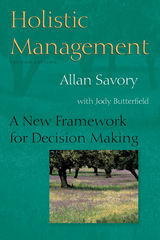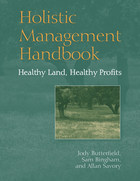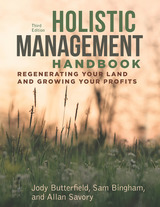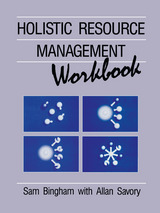9 start with H start with H

Intended primarily for those doing research in the field of international management, this book should also interest scholars and students of public institutions, sociology, and industrial psychology. Managers will find the book's comprehensive overview of international management to be invaluable. Its global perspective will appeal to readers around the world.
Betty Jane Punnett is Professor of International Business, University of the West Indies, Cave Hill Campus.
Oded Shenkar is Ford Motor Company Chair in Global Business Management, Fisher College of Business, the Ohio State University.

A basic guide for individuals responsible for developing and/or operating comprehensive or specialized human service programs.
Drawing on more than a decade of classroom experience and development and incorporating standards from the Commission on Accreditation of Rehabilitation Facilities (1985 Edition), Riggar and Matkin have created a management tool that is as practical for human service providers as it is for students. Here is the fundamental management knowledge required to establish or manage all types of human service programs and facilities.
The text is organized into 23 sections that describe tasks ranging from constructing mission statements and admission criteria to developing start-up budgets and allocating space for both direct and indirect services. Each section provides definitions and guidelines, practical examples, exercises, and selected references. While the focus is on the practices of the private not-for-profit sector, those working in a profit-oriented setting will find many of the sections and exercises to be valuable aids for developing, operating, and maintaining successful programs.

Three intertwined stories that reveal the challenges faced by the US Navy in its evolution between the Civil War and the First World War
Hard Aground brings together three intertwined stories documenting the US Navy’s strategic and matériel evolution from the end of Civil War through the First World War. These incidents had lasting consequences for how the navy would modernize itself throughout the rest of the twentieth century.
The first story focuses on the reconstruction of the US Navy following the swift and near-total dismantling of the Union Navy infrastructure after the Civil War. This reconstruction began with barely enough time for the navy’s campaigns in the Spanish-American War, and for its role in the First World War. Jampoler argues that the federal government discovered that the fleet requested by the navy, and paid for by Congress, was the wrong fleet. Focus was on battleships and cruisers rather than destroyers and other small combat vessels needed to hunt submarines and serve as convoy escorts.
The second story relates the short, tragic life of the USS Tennessee (later renamed Memphis), one of the steel-hulled ships of the new Armored Cruiser Squadron that was a centerpiece of the navy’s modernization effort. The USS Tennessee was ordered on two unusual missions in the early months of the First World War, long before the United States formally entered the war. These little-known missions and the ship's shocking destruction in a storm surge in the Caribbean serve as the centerpiece of the story. Threaded through the narrative are biographical sketches of the principal players in the drama that unfolded following the ship’s demise, including two of Tennessee’s commanding officers: Vice Admiral Sims, who commanded the US Navy squadrons deployed to Europe in support of the Royal Navy; Rear Admiral William Caperton, who commanded the Caribbean squadron before the Memphis (formerly the Tennessee) was lost; Charles Pond, squadron commander during the wreck; and the American ambassador to the Ottoman court, President Wilson’s enthusiastic supporter, Henry Morgenthau.
Jampoler rounds out this fascinating account with the story of how the USS Tennessee’s destruction prompted fierce deliberations about the US Navy’s operations and chains of command for the remainder of the First World War and the high-level political wrangling inside the Department of the Navy immediately after the war, as civilian appointees and senior officers wrestled to reshape the department in their image.




This new edition, thoroughly revised, updated, and streamlined, explains the planning procedures described in Holistic Management, and offers step-by-step instructions for running a ranch or farm using a holistic management approach. Butterfield and her coauthors describe how to use the handbook in conjunction with the textbook to tailor a management plan for your unique combination of land, livestock, and finances. Their mantra is “plan, monitor, control, and replan.” Using a four-part approach, the authors walk readers through basic concepts and techniques, help them put a plan onto paper, monitor the results, and adjust the details as needed. Appendixes provide updated worksheets, checklists, planning and monitoring forms, and detailed examples of typical scenarios a user might encounter. The handbook includes a comprehensive glossary of terms.
Ranchers, farmers, pastoralists, social entrepreneurs, government agencies, and NGOs working to address global environmental degradation will find this comprehensive handbook an indispensable guide to putting the holistic management concept into action with tangible results they can take to the bank.

Holistic management is a systems-thinking approach for managing resources developed by Savory decades ago after observing the devastation of desertification in his native Southern Rhodesia (now Zimbabwe). Properly managed livestock are key to restoring the world’s grassland soils, the major sink for atmospheric carbon, and minimizing the most damaging impacts on humans and the natural world. This book updates Savory's paradigm-changing vision for reversing desertification, stemming the loss of biodiversity, eliminating fundamental causes of human impoverishment throughout the world, and climate change. Reorganized chapters make it easier for readers to understand the framework for Holistic Management and the four key insights that underlie it. New color photographs showcase before-and-after examples of land restored by livestock.
This long-anticipated new edition is written for new generations of ranchers, farmers, eco- and social entrepreneurs, and development professionals working to address global environmental and social degradation. It offers new hope that a sustainable future for humankind and the world we depend on is within reach.

READERS
Browse our collection.
PUBLISHERS
See BiblioVault's publisher services.
STUDENT SERVICES
Files for college accessibility offices.
UChicago Accessibility Resources
home | accessibility | search | about | contact us
BiblioVault ® 2001 - 2024
The University of Chicago Press









